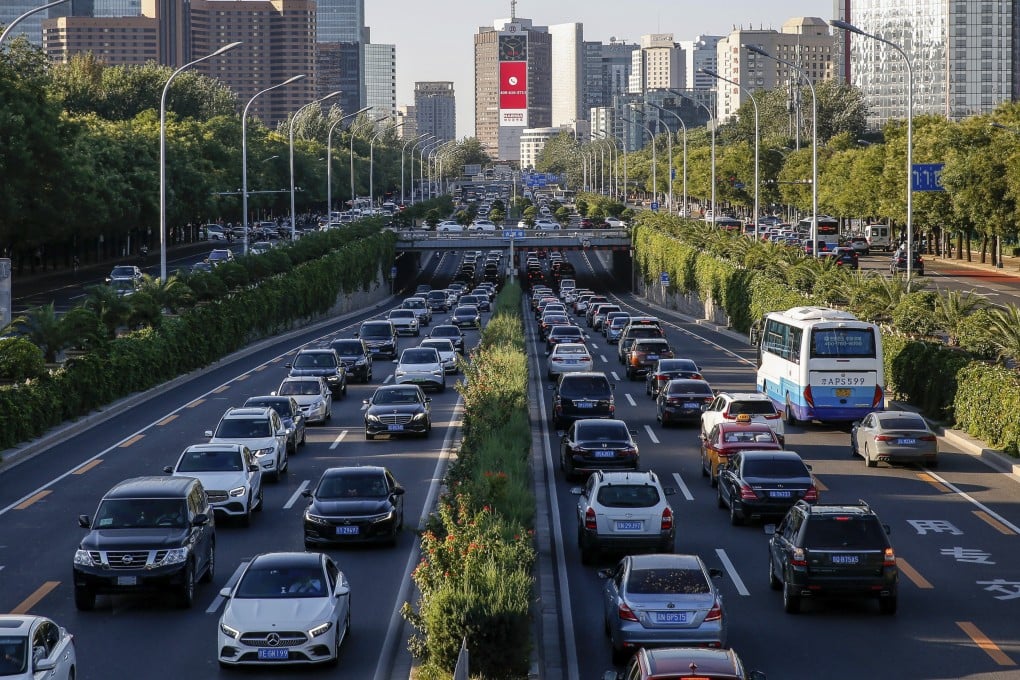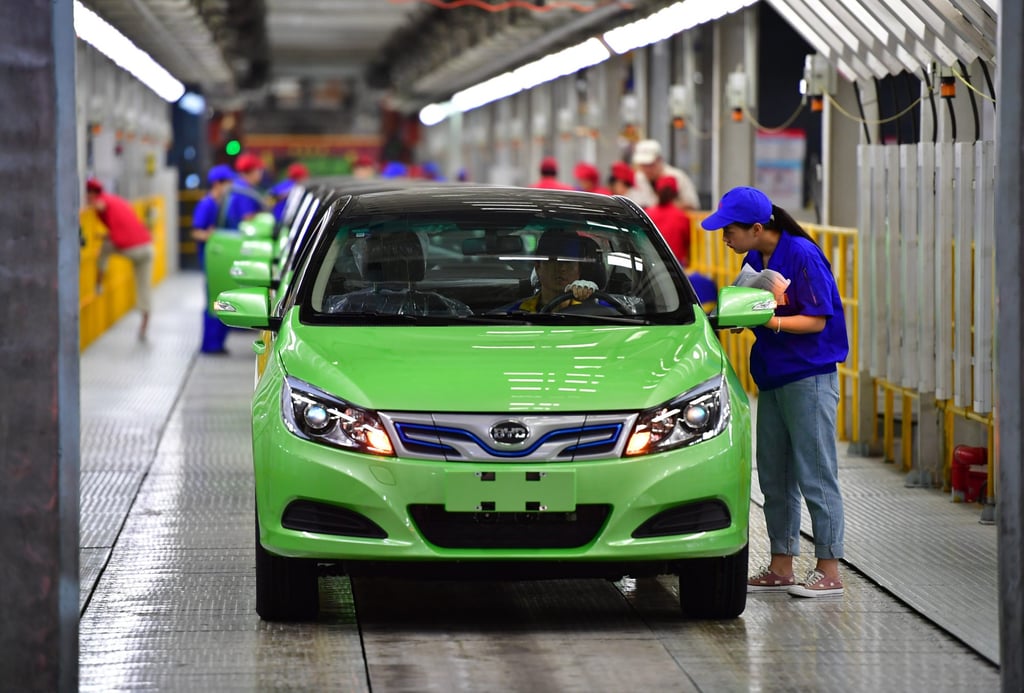Advertisement
China’s big carmakers show no signs of ending production of fossil-fuel vehicles, struggle to keep pace with nation’s net-zero goal: Greenpeace
- Warren Buffett-backed BYD is the only major Chinese carmaker to end production of conventional cars, but it is yet to announce a timeline to reach carbon neutrality
- Slow transition to zero-emission vehicles hinders China’s carbon neutrality efforts, Greenpeace campaigner Bao Hang says
Reading Time:3 minutes
Why you can trust SCMP
1

Yujie Xuein Shenzhen
Most of China’s top carmakers have no plans in place to phase out conventional vehicles or a detailed timetable for their net-zero targets in response to China’s carbon neutral pledges, according to Greenpeace East Asia.
BYD, backed by Warren Buffett’s Berkshire Hathaway and the world’s largest electric vehicle (EV) maker, is the only major Chinese auto brand to end internal combustion engine car production, but even it has not set a net-zero target yet, the environmental group said in a report on Tuesday.
The share of battery-powered cars in China’s passenger car market is still small even after years of strong growth, with EVs accounting for less than 14 per cent of most of the top Chinese carmakers’ total sales last year, the report said.
Advertisement
“A slow transition to zero-emission vehicles hinders China’s carbon neutrality efforts,” said Bao Hang, a Greenpeace East Asia campaigner in Beijing. “At the same time, China’s new EV producers are rapidly expanding, and the industry as a whole is moving towards an EV-driven market. Traditional automakers that fail to transition to EVs risk losing market share and falling behind.”

Greenpeace analysed China’s 10 biggest carmakers based on their sales in 2021, rating their performance on low-carbon transition based on their net-zero commitments, EV deployment, fuel efficiency and emissions data transparency.
Advertisement
BYD topped the overall Greenpeace ranking that comprised SAIC, Great Wall Motor, Chery, GAC, Chang’an, Dongfeng, Geely, BAIC and FAW. The Shenzhen-based carmaker is the only Chinese carmaker at the COP26 climate summit in Glasgow last year to commit to selling only zero-emission cars globally by 2040. In April, BYD further announced it had stopped producing combustion engine vehicles and would only make electric and plug-in hybrid cars.
Advertisement
Select Voice
Select Speed
1.00x